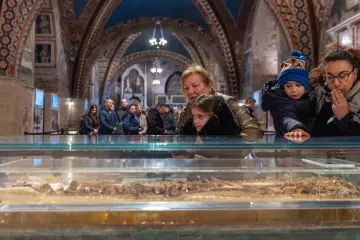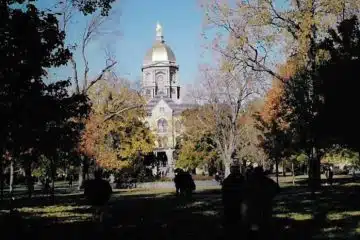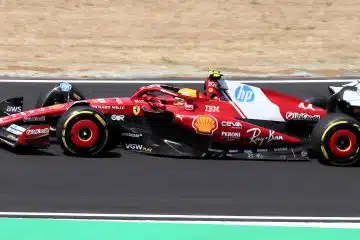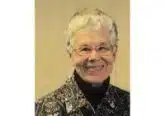What Are You Looking For?

Two thousand years ago, in a place near Bethany beyond the Jordan river, Jesus asked this question of Andrew: “What are you looking for?” (Jn. 1:38).
These are the first words that Jesus speaks in John’s Gospel. His question becomes a theme: He asks it after the Resurrection of Mary Magdalene and of the two disciples on the road to Emmaus.
We see in this question God’s desire to reach us at the level of the heart. Jesus knows us better than we know ourselves and He knows that our desire can only be fulfilled in God. Yet, He wants to converse with us to lead us to a deeper understanding of who we are and who He is calling us to be.
Within the human heart we encounter the Lord, and within the heart we decide to follow Him.
Pope Leo XIV recently encouraged seminarians in their life of prayer: “That is the place where God makes his voice heard, and where the deepest decisions of our lives take shape” (“Meditation of Pope Leo XIV for the Jubilee of Seminarians,” June 24, 2025). It is in prayer that we learn to hear the still small voice of the Lord.
Prayer is also the arena where we wrestle with God and where conversion happens, as Pope Leo XIV further explained: “It is also the place where you will encounter the tensions and struggles (Mk. 7:14-23) that summon you to conversion, so that your entire life can breathe the fragrance of the Gospel.”
With these words—What are you looking for?—Jesus begins an invitation for Andrew to follow Him. Ultimately, Jesus calls each of us to follow Him as a Christian and in our particular vocation.
Andrew was the protoclete—“first called”—by Jesus. He is, then, also the first man called by Jesus to be a priest. So, what can we learn from the first man ever to be called by Jesus to the priesthood?
Andrew pointed others to the Lord. A priest once reflected in a homily that St. Andrew is the patron saint of the “point.” John the Baptist pointed Andrew to Jesus, and Andrew later pointed Peter to Jesus. He knows that it is not he but Jesus who is the answer. In this way, Andrew is humble. By his life and martyrdom, he still points all of us to Christ.
Andrew was a man of community, seeking wisdom. When he first saw Jesus, Andrew was standing in a small group led by John the Baptist (Jn. 1:35). Can you imagine having John the Baptist as your small group leader? Sign me up!
Likewise, in small communities, be it a Bible study or otherwise, we learn to seek the truth and learn to be Christ’s disciples.
Andrew was watching for and awaiting the Messiah, ready to act when Jesus came. He did not hesitate to follow the Lord. He knew his life mattered. Do we also recognize that our lives really matter? God has created each person for some definite purpose. You have a place in God’s design. Your life matters. You have a mission.
Saying “yes” to Jesus takes generosity. Yet, God is never outdone in generosity. Even when God asks a man to take a great leap of faith, like becoming a priest.
As Pope St. John Paul II exhorted, “Do not be afraid of the radicalness of His demands, because Jesus, who loved us first, is prepared to give Himself to you, as well as asking of you. If He asks much of you, it is because He knows you can give much” (The Meaning of Vocation).
Along with generosity, it takes courage. Courage to trust in God, courage to risk everything on following Jesus.
The work of discovering our vocation and living it out can begin today. We start by recognizing that God has a purpose for us. We can cultivate the needed virtue to say “yes” through prayer and living generously and with courage.
Nearly two millennia since the Incarnation, Jesus continues to call men like St. Andrew to “Follow me.” Jesus calls young men to be his priests, to “put out into the deep” and “be not afraid.”
Who knows, perhaps you were created for such a time as this.
What are you looking for? ✣
For more on your vocation click here.
 Fr. Michael Willig is the Director of the Vocations Office for the Archdiocese of Cincinnati.
Fr. Michael Willig is the Director of the Vocations Office for the Archdiocese of Cincinnati.
This article appeared in the November 2025 edition of The Catholic Telegraph Magazine. For your complimentary subscription, click here.













